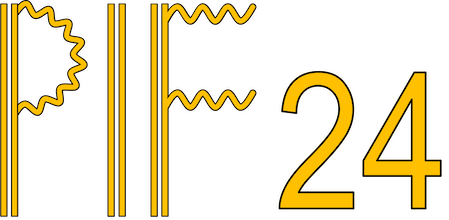Speaker
Description
Despite some methodological limitations, particle-in-cell simulations can be used to analyze laser-driven QED cascades and dynamics of the emergent QED plasmas. These processes, however, can quickly run into extreme regimes in terms of number of particles and their density causing extraordinary computational demands. We discuss possibilities to overcome some key limitations of the PIC method by two improvements. The first improvement is a possibility to enforce exact energy conservation to suppress or even eliminate numerical heating and instabilities without field smoothing, high-order weighting as well as excessive computational costs related to large number of particles per cell and small time and space steps [1]. The second improvement concerns conservative and thereby non destructive down-sampling of particle ensemble during the development of QED cascades [2]. Both improvements are made available in an open-source Python package 𝜋-PIC [3] that is designed to support studies of QED cascades in extreme regimes, as well as data analysis of upcoming laser-based experiments on strong-field QED.
[1] A. Gonoskov, Explicit energy-conserving modification of relativistic PIC method, J. Comput. Phys., 502, 112820 (2024); arXiv:2302.01893
[2] A. Gonoskov, Agnostic conservative down-sampling for optimizing statistical representations and PIC simulations, Comput. Phys. Commun. 271,108200 (2022); arXiv:1607.03755
[3] 𝜋-PIC, https://github.com/hi-chi/pipic

